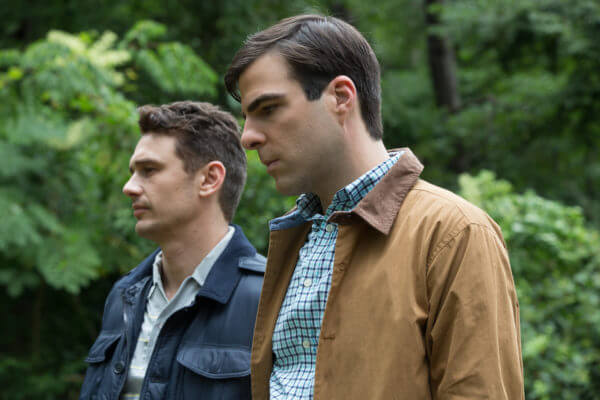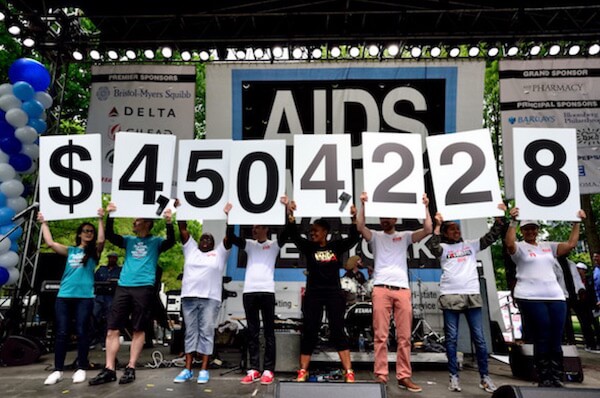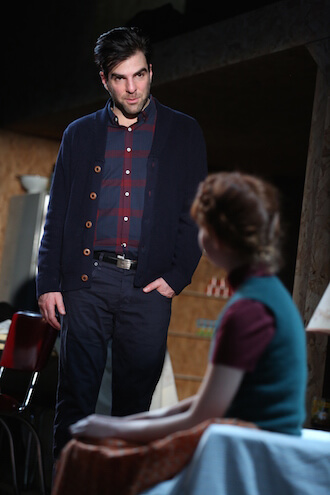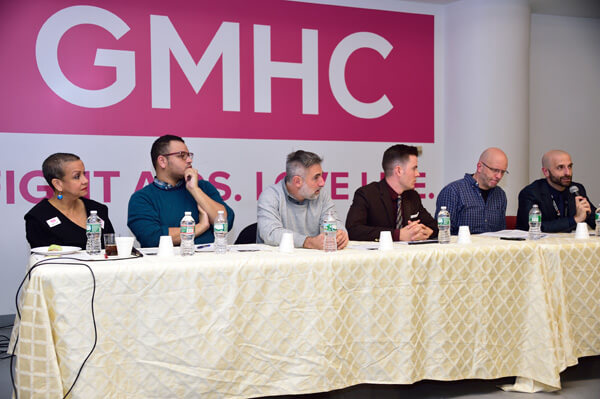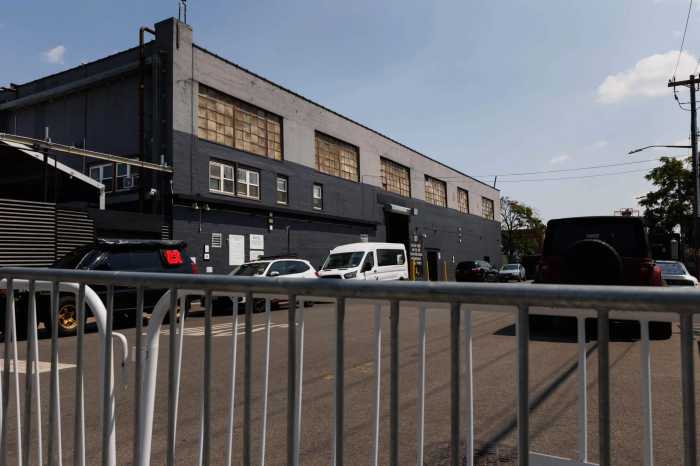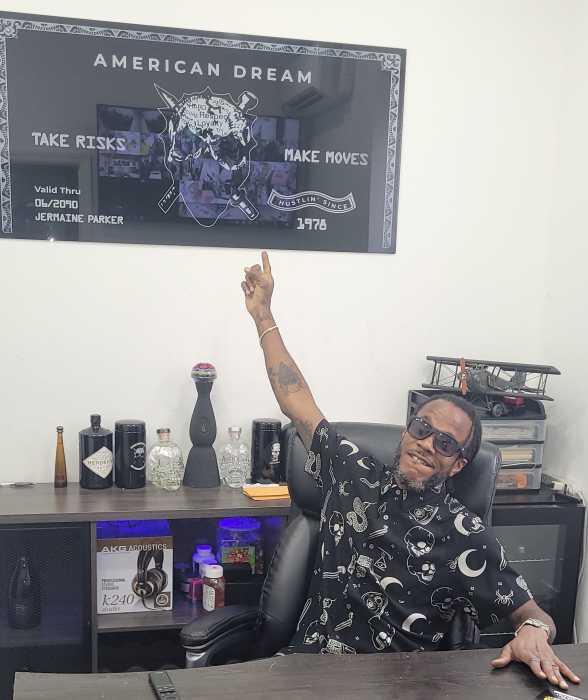James Franco and Zachary Quinto in Justin Kelly’s “I Am Michael,” based on the life of Michael Glatze. | BRAINSTORM MEDIA
The title character of writer and director Justin Kelly's “I Am Michael” is Michael Glatze (James Franco), a gay activist and former managing editor of X/Y magazine, who in 2007, renounced his homosexuality, became an anti-gay poster child, and then went on to become a Christian pastor. How could someone who encouraged youth to embrace their same-sex desires — even making documentaries about rural queer youth — not only no longer identify as gay, but also have contempt for the gay people he once wanted to help?
Kelly’s engaging, provocative film chronicles Glatze’s transformation, which angered and confused many members of the LGBTQ community. “I Am Michael” presents a series of defining episodes in Glatze’s life, from the murder of Matthew Shepard that inspired his documentary work with queer youth, to his grief over his late parents, to a health crisis that prompted his seemingly sudden turn toward God and religion. As he reads the Bible, explores Christianity and Buddhism, and eventually attends Bible college to become a pastor, Glatze finds himself being, in his words, “shook up and woken up” to who he truly is.
James Franco plays Michael Glatze, in crisis and then seeming peace
Franco is entirely convincing in the role. The actor is thoughtful and restrained here, making Michael’s journey and his decisions credible, even as they generate anguish and consternation from his ex-boyfriend, Bennett (Zachary Quinto), and their mutual lover, Tyler (Charlie Carver).
In a recent phone interview, Kelly spoke with Gay City News about “I Am Michael.”
GARY M. KRAMER: “I Am Michael” is based on Benoit Denizet-Lewis’ New York Times Magazine article entitled “My Ex-Gay Friend.” What was your strategy in telling this story and depicting the characters?
JUSTIN KELLY: The goal was always to try to be as non-judgmental as possible. I appreciate Lewis’ tack to understand what happened rather than attack and vilify. It wasn’t easy, but everyone involved felt it would be more interesting and reveal more and incite more conversation if we could try to understand why Michael did what he did, and treat him the way he [once] asked to be treated by Christians, which would be not to assume, judge, or vilify gay people.
GMK: You show that being lost, alone, and confused is how Michael sees gay youth as they come to accept their sexuality, but he himself, is lost, alone, and confused when he comes to accept religion. Can you talk about your thoughts about the ideas of community, congregation, being, and belonging?
JK: This ties in a little to your first question for me. People read the article and think: How did this happen? But we wanted to tell a story that’s something that happened to one person, and show in the film that he was a comfortable, out gay man and he was a comfortable Christian man. But at no point was he a comfortable ex-gay man. I wanted people to understand why he went down each path, and how he was being perceived — that’s what drove him.
GMK: What can you say about the film’s themes of fear, control, and shame? Fear is what the Bible college teacher discusses, but it is the flip side of what gay youth are told. Can you discuss how these themes are two sides of the same coin?
JK: That’s why this story is so fascinating. We’re used to hearing the other version, someone who didn’t feel comfortable and grew up with messages of shame. But Michael went out himself, on his own dime, and spread a message to gay youth to not fear being alone and afraid. Then for him to go to the other extreme and be a Christian who is following the rules of the Bible, which is the word of God… How the people Michael fell in with imposed upon him the strict rules of fearing himself. For him to be free and accepting of his past would be running with the Devil.
GMK: In the conversation between Michael and Bennett there’s a line about “repressing who you truly are,” which has a double meaning. Can you talk about balancing the two sides of Michael’s character?
JK: A lot of that came from something Michael himself wrote or ideas I was interested in getting across from my own life experience or conversations with friends about this story. I think it’s common that we hear stories about an anti-gay political figure or church figure who gets caught blowing someone in the bathroom. There is this interesting thing where the more outwardly anti-gay a person is, the more repressed homosexual they are likely to be. So talking about these issues, I wanted to discuss what it means to repress. Is Michael repressing who he is — a gay man who wants to be straight so badly that he is willing to lie to others and himself about what he wants and who he is? Or is he able to erase a part of him he’s no longer interested in?
GMK: Do you think Michael was a narcissist?
JK: Yes, I do think there is a little narcissism involved. He always liked to be the center of attention. At X/Y magazine, the main goal was to help gay youth, but a part of that was to speak and be in charge. He wanted to run the show and be a ringmaster. I do think that drove him, and that’s why the final scene is Michael on a stage in front of an audience.
GMK: Why do you think — or do you think — Michael is sympathetic?
JK: I think he’s sympathetic because of this universal, relatable desire to belong and be accepted and find your place in this world. The struggle for identity he goes through — and while I disagree with so much he said — this story feels like a hero’s journey. He set out to find himself, and he does. Whether he is true to himself is up in the air, but he set off on this mission and went to Hell and back to find happiness and who he really wants to be. I sympathize with him for that.
I am in a bit of awe and proud of him for trying so hard to find what he’s looking for in ways other won’t do.
GMK: The film, like your subsequent feature “King Cobra,” is more focused on identity than sex. What can you say about the themes of gay identification that are discussed through “I Am Michael?”
JK: The overall issue and theme is: What does it mean to identify as gay? I have endless conversations with my gay friends about this. There’s not an answer. There are plenty of opinions. I don’t know where I fall, but I do like to talk about it.
GMK: What message do you want folks who see “I Am Michael” to take away? Is this a cautionary tale? Should we be more open to change and identity?
JK: Ultimately, the film isn’t seeking to send out any particular message. It’s one man’s story — what he went through and what we can learn from it and the conversation it elicits. The film can be interpreted in many different ways, but Michael forcing himself to fit into a mold of who he really is –– or isn’t –– on the power of belief, in this political climate… It’s thinking about how organizations or leaders can cause people to believe something so badly they feel the need to change who they are when they don’t need to.
I AM MICHAEL | Directed by Justin Kelly |Brainstorm Media | Opens Jan. 27 | Cinema Village, 22 E. 12th St. | cinemavillage.com

